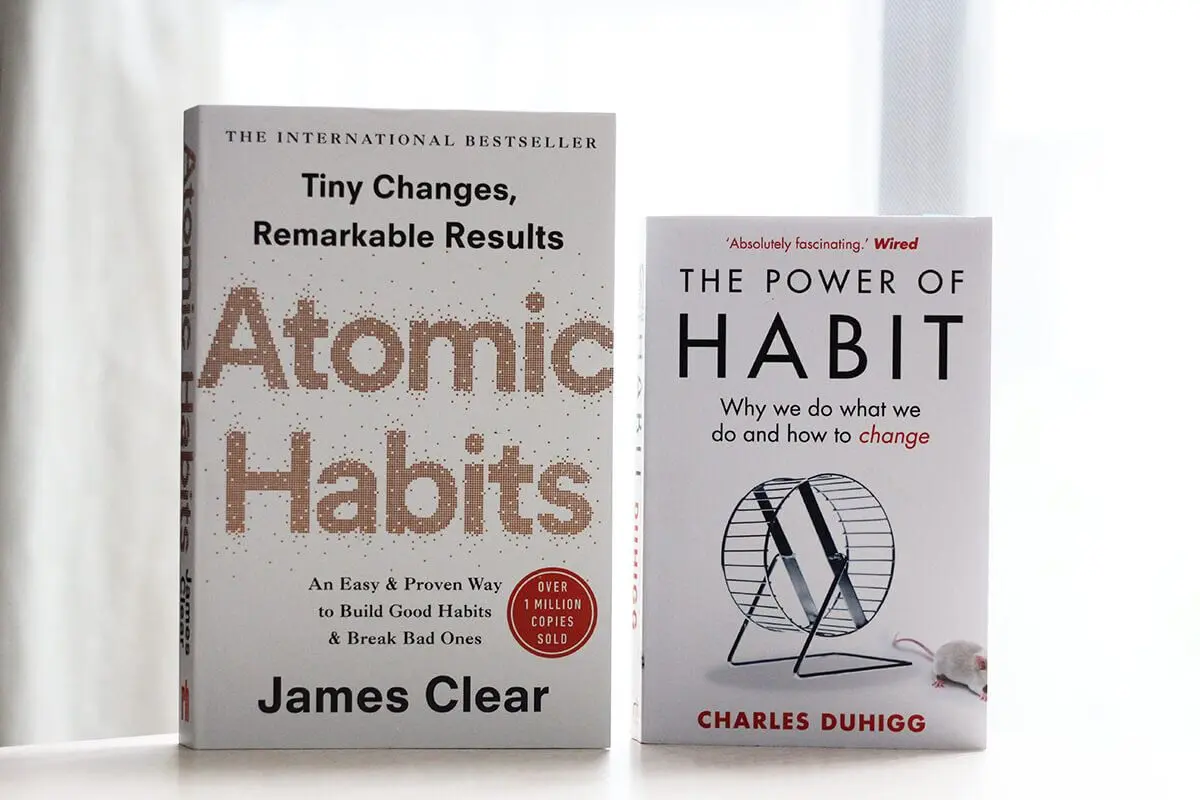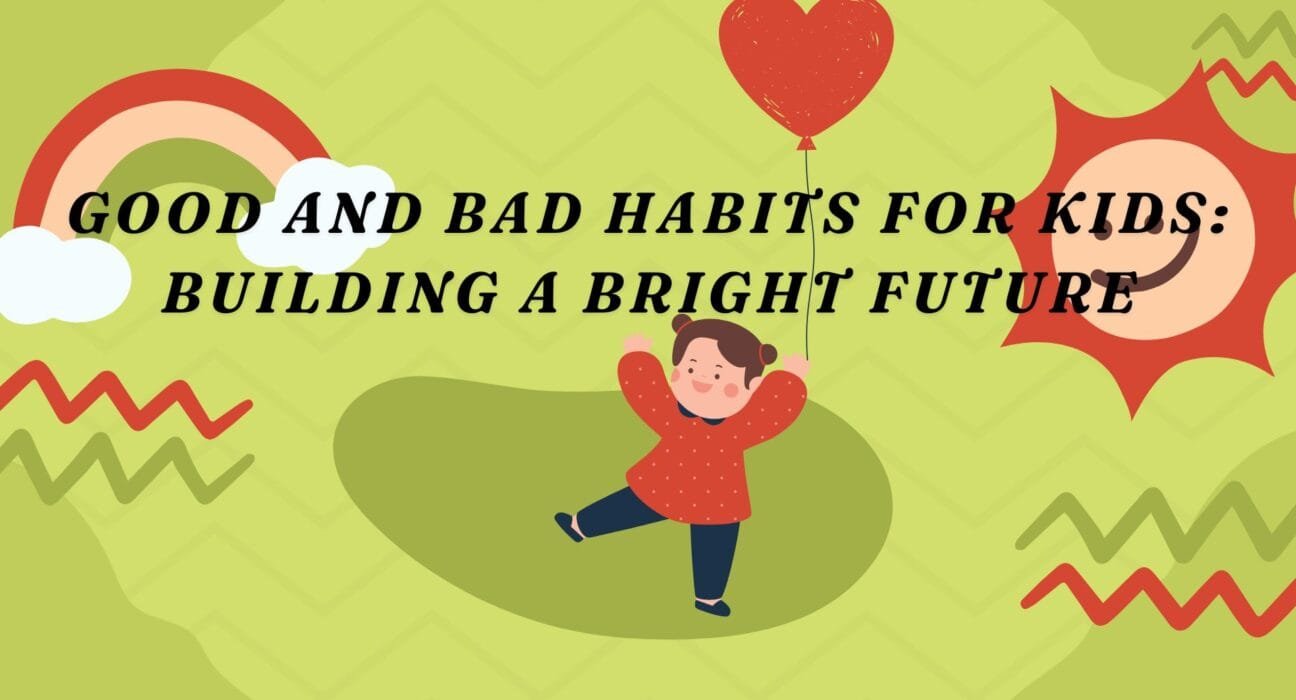Introduction
Good and bad Habits play a crucial role in shaping a child’s personality and future. They are behaviors that kids learn through daily routines, which can lead to positive outcomes or have negative consequences if left unchecked. Parents, educators, and guardians must guide children toward good habits and help them avoid bad ones from a young age. In this blog post, we will explore the importance of habits, list common good and bad habits for kids, and provide practical tips on how to instill positive behaviors in a fun, engaging way.

Understanding Good And Bad Habits
Children’s minds are highly impressionable. The habits they form during their developmental years tend to stick with them into adulthood. Good habits promote responsibility, health, and emotional well-being, while bad habits can hinder their growth, confidence, and relationships. By understanding and addressing habits early, parents and educators can help children grow into well-rounded, disciplined individuals, ready to take on life’s challenges.
- Develop a Positive Mindset: Good habits create a positive mindset in children, fostering self-esteem and confidence. When kids succeed in maintaining good habits, they feel accomplished and motivated.
- Supports Academic Achievement: Establishing a routine leads to improved focus and study skills. Kids who develop good habits, like doing homework at a set time, are more likely to succeed academically.
- Promotes Healthy Living: Healthy habits, such as eating well and exercising, significantly reduce the risk of childhood obesity and associated health problems. Encouraging these habits early on sets a precedent for a healthy lifestyle as they grow.
- Builds Discipline and Responsibility: Good habits instill discipline, helping children take responsibility for their actions. This quality is essential as kids navigate through school and personal relationships.
Good Habits for Kids
- Healthy Eating: Encouraging kids to eat nutritious foods, including fruits, vegetables, and whole grains, helps build a strong immune system.
- Regular Exercise: Whether it’s running, swimming, or playing sports, physical activity is crucial for a child’s physical and mental development.
- Reading: Developing a love for reading not only improves language skills but also enhances creativity and cognitive development.
- Sharing and Kindness: Teaching kids to share with others and show empathy builds social skills and fosters friendships.
- Responsibility: Assigning age-appropriate chores helps children understand accountability and develop a strong work ethic.
- Good Hygiene: Regular brushing, bathing, and handwashing are essential for maintaining health and instilling discipline.
- Gratitude: Teaching children to say “thank you” and appreciate what they have fostered a positive attitude toward life.

Bad Habits
- Procrastination: Delaying homework or chores can lead to missed opportunities and a lack of discipline.
- Too Much Screen Time: Excessive use of phones, tablets, and video games can hinder a child’s social development and physical health.
- Interrupting Conversations: Not waiting for their turn to speak can reflect poor listening skills and disrupt communication.
- Lying: Dishonesty can harm trust and relationships, making it important to encourage truthfulness from an early age.
- Laziness: Avoiding responsibility can develop into a lack of motivation in school and other areas of life.
- Whining: Constant complaining can create a negative environment and undermine problem-solving skills.
- Negative self-talk: Criticizing themselves harshly and doubting their abilities.
- Poor eating habits: Skipping meals or opting for junk food.
How To Implement Good Habits As Parents And Teachers
- Model Good Habits: Children learn by observing adults. By modeling good habits, such as healthy eating and consistent routines, you teach kids valuable lessons through actions rather than words.
- Create a Routine: Establishing a daily routine helps children know what to expect. This structure encourages them to develop good habits. Use charts or planners to visualize tasks and routines.
- Positive Reinforcement: Celebrate small successes when kids engage in good behavior. Praise them or offer rewards for maintaining good habits, which reinforces their positive actions.
- Set Realistic Expectations: Introduce habits gradually. Trying to overhaul a child’s daily life overnight can lead to frustration. Start with one habit at a time and build on them as they succeed.
- Incorporate Fun: Make Habits enjoyable! Turn activities like exercising or reading into family events, so kids associate positive behavior with fun experiences.
- Discuss the Impact of Bad Habits: Have open conversations about the consequences of bad habits. Help them understand why certain actions can be detrimental.
- Use Visual Aids: Visual reminders like charts, posters, or digital tools can help children stay on track with their good habits. Schools can use bulletin boards to display “Habit of the Week” and encourage all students to participate.
By making the process fun, engaging, and consistent, we can guide children toward habits that will serve them throughout their lives, preparing them for a brighter future.
A Story About Habits: The Tale Of Timmy And Lucy
Once upon a time, there were two friends, Timmy and Lucy, who were very different in how they spent their days. Timmy was a smart boy, but he had some bad habits. He would bite his nails when nervous, avoid his homework until the last minute, and spend hours playing video games instead of going outside to play. His mom often reminded him, “Timmy, these habits won’t help you grow.”
Lucy, on the other hand, had good habits. She woke up early, brushed her teeth without being told, and always completed her homework before going out to play. Lucy loved reading and sharing her stories with friends. “Lucy, your habits are your superpower,” her teacher would tell her.
One day, Timmy realized he couldn’t finish his school project on time because he had procrastinated too much. He felt stressed and worried. Lucy noticed and offered to help him out. She showed him how to break his tasks into small steps and reminded him to take short breaks in between. Timmy was so grateful and decided to adopt some of Lucy’s good habits. Over time, Timmy started finishing his homework early, playing sports after school, and even stopped biting his nails. He realized that good habits made him feel happier and more in control of his day.
Reputable Resources And Studies: Can Help In Understanding Habits In Children’s Development
- American Academy of Pediatrics (AAP): The AAP offers a variety of articles and resources on healthy habits for children, including guidelines on screen time, exercise, nutrition, and sleep. They also publish medical papers on child health and development that can be useful for understanding the impacts of habits on overall health. Website – HealthyChildren.org
- National Institute of Child Health and Human Development (NICHD): NICHD conducts and supports research on child development, including studies on behavior and habit formation. It covers a wide range of topics related to child growth, mental health, and learning habits. Website – NICHD.
- Harvard University’s Center on the Developing Child: This center focuses on early childhood development and provides research-based insights on the impact of habits and early life experiences. Their resources help parents and educators understand how to support healthy behavioral patterns in young children. Website – Centre on the Developing Child.
- World Health Organization (WHO) – Children’s Health and Development: WHO offers global guidelines on children’s health, including recommendations for physical activity, screen time, sleep, and nutrition. It is a trusted source for evidence-based practices on promoting healthy habits in children. Website – WHO Children’s Health.
Books On Child Development And Habit Formation
“Atomic Habits” by James Clear: Though not specifically for children, this book provides valuable insights into how habits work and how they can be changed, which can be applied to kids’ development.
“The Power of Habit” by Charles Duhigg: This book explains the science behind habits, including those formed in childhood, and offers practical ways to build better habits.

Conclusion
Fostering good and bad habits in children is crucial for their overall development. By understanding these habits, we empower kids to establish routines that promote healthy behaviors, discipline, and academic success. Remember, every small step taken today can lead to significant changes tomorrow. Encourage good habits and gently steer kids away from the bad ones, and you’ll be laying the groundwork for their successful futures.
“First we make our habits, then our habits make us.” – Charles C. Noble






